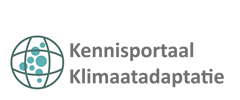Goeree-Overflakkee is conducting risk dialogues
The municipality of Goeree-Overflakkee has conducted a first round of meetings on the impact of climate change on the Zuid-Holland island. What was its approach? What results have been achieved? And what has the municipality learned in the process? This page provides all the information.
What has prompted the risk dialogues?
In 2018, the municipality of Goeree-Overflakkee conducted a stress test, in collaboration with the Hollandse Delta district water board and the province of Zuid-Holland. This stress test has identified locations that are vulnerable to climate change. The stress test served as the starting point for the authorities to conduct a first round of meetings, along with other stakeholders. These meetings were intended to improve and expand the available information and expertise.
How has Goeree-Overflakkee approached the risk dialogues?
In early 2019, the municipal authorities met with several organisations, among which district water boards, the Rotterdam-Rhine Estuary Security Region, nature organisations Staatsbosbeheer and Natuurmonumenten, and the Dutch Federation of Agriculture and Horticulture LTO, Goeree-Overflakkee division. The meetings enabled them to share and fine-tune their insights regarding the stress test. In addition, the meetings addressed the potential uncertainties that climate change may entail and the impact it may have on Goeree-Overflakkee. These effects were categorised as follows: More frequent extreme drought; More frequent extreme heat; More frequent extreme precipitation; Sea level rise; and It is getting warmer.
What have the dialogues generated?
During the risk dialogues, the participants discussed the potential negative impact of climate change on people, on the living environment, and on the economy. Extreme drought is adding to the probability of dune fires and of reduced crop yield. However, climate change also opens up opportunities for the municipality: prolonged periods of sunny weather increase the island’s appeal for tourists.
In addition, the dialogues have generated the following results:
- The representatives of the various organisations have amassed more knowledge of the potential consequences of climate change for Goeree-Overflakkee. They can utilise this knowledge when developing an adaptation strategy.
- Both the organisations and the residents have become more aware of and concerned about climate change and its impact.
- Several organisations are going to explore what climate change entails for them and what their role is in this respect. In some cases, this has already resulted in such practical measures as the adoption of level-driven drainage at farms, enabling farmers to control the volumes of water to be drained and to be retained in the soil.
- From now on, climate change will feature on the agendas of regular consultative meetings with various stakeholders.
- Meetings are currently being held on what climate change will entail for the future of Goeree-Overflakkee.
Lessons to be learned
During the risk dialogues, the authorities have learned that neither they nor the participants have a proper view of the full impact of climate change. In part, this is due to the fact that climate change can be highly complex. Several developments and systems are not only manifest locally, but also feature at the regional, national, and even global levels. For that reason, it is imperative to continue the dialogue with relevant stakeholders. Rather than a process that is eventually completed, the risk dialogue is a form of collaboration involving the collective pursuit of a climate-proof environment.
What topics are relevant in drawing up an adaptation strategy?
The risk dialogues have provided Goeree-Overflakkee with a picture of how climate change may impact people, the living environment, and the economy. During the meetings, several topics were addressed that are of relevance when drawing up a municipal adaptation strategy. These include:
- Behavioural changes: Rather than continuously taking measures in the public space, you can also accept that a situation is deteriorating. However, you will then need to ensure that people change their behaviour in order to increase their coping capacity.
- Value creation: Climate adaptation measures are usually reviewed from a financial perspective. This enables you to select the cheapest measure producing the maximum effect. However, climate adaptation can also be considered from a future perspective, viz. by using climate adaptation to create other values that, in the long run, benefit the economy as well as people and the living environment.
- Prioritising: As climate change will go on for quite some time, you need to set priorities. Some measures bear postponing, others do not. Although it is good to act quickly, it is even better to act carefully.
Contact person
Jos 't Mannetje
Gemeente Goeree-Overflakkee
j.tmannetje@goeree-overflakkee.nl
